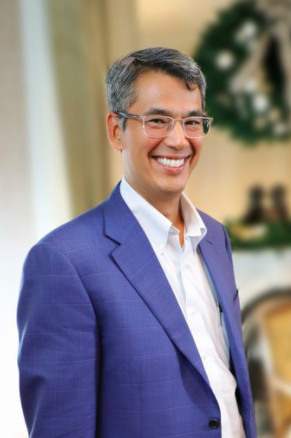As Vice President of Programs at JFF, improving learning systems is top of mind for Joel Vargas, who, since joining JFF in 2o02, has designed and implemented research and state policy agendas for implementing early college designs, created policy frameworks, served on national advisory groups, provided technical assistance to state task forces, and more. The cornerstone of JFF’s work is driving changes in the American workforce and education systems that promote economic advancement, focusing on ensuring economic advancement, meeting employer needs, and preparing for the future of work. Vargas joined Schools That Can as part of the 2021 virtual Thought Leadership panel, Is the High School Model Ready for Revolutionary Change? Here, Vargas tells STC more about his own education to employment pathway, his current work, and advice he’d give a young person right now.
 What was your own education to employment pathway like? What led you to your current work?
What was your own education to employment pathway like? What led you to your current work?
It was circuitous. Entering college, I thought I wanted to be a print journalist, but I determined after a year that that wasn’t for me as a profession. Somehow, however, I had the good sense to stick with what was a good and reputable journalism program because I knew that most of my courses were actually in political science and other humanities. And I liked to write. So, I was still doing that.
However, I had grown up in a program that prepared middle schoolers for college prep programs and dabbled there as a student teacher while in high school which was always rewarding. After a couple of years working in a municipal department of human services – also having an interest in social policy – I got a job co-directing a national expansion site for that program in which I had grown as a student and budding teacher. That led me to wanting to transform high schools and education policy because I saw too many of our talented graduates flame out in high school, and I got my doctorate in education planning, administration and social policy.
To make a long story longer, my job at JFF after grad school was about research, writing, policy, and education transformation. So, my long journey and intersection of interests ended up making a lot of sense.
We wanted to follow up on something you mentioned during the panel: that systems might have gone overboard by not leaving students to experience different things, including college, career, and community experience, that don’t translate into test scores. Why are those things so critical as young people gain stable footing in adulthood?
There is no substitute for experiential learning, but our high schools still typically treat preparation for the future as if it can be taught abstractly and in isolation from actually having students try out and try on their potential future selves. Students would gain a lot of confidence and a sense of accomplishment and efficacy through early college and career experiences with the support of adults they trust from high school.
 What’s something happening at JFF right now that you’re especially excited about?
What’s something happening at JFF right now that you’re especially excited about?
We just published a white paper, The Big Blur, that argues for erasing the Boundaries Between High School, College, and Careers—and Creating One New System That Works for Everyone. It is getting a good reception, and we’re interested in identifying places where we might be able to take steps with partners toward this vision.
Recently, there’s been a lot of national discourse around work inequities and low wages, as well as the cost of higher education. If you were designing the future, what would the relationship between school and work look like?
See The Big Blur!
What’s one piece of advice you’d give a young person right now?
Ask your teachers and guidance counselors about options for starting some college course work early. Most states have policies that enable this, but students and parents aren’t always aware, especially those from first-generation college backgrounds. Also, ask about opportunities to get credit for doing internships and apprenticeships. Those can be a little harder to find and make organize, but if enough students and parents start calling the question, perhaps schools will respond to the demand.
(Photo credit: https://www.jff.org/about/staff/joel-vargas/)

